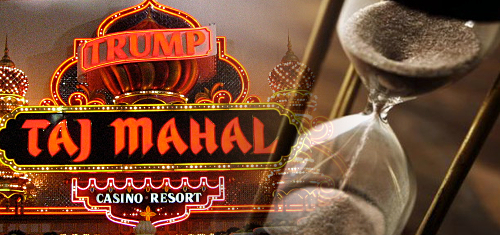 Atlantic City’s Trump Taj Mahal is officially living on borrowed time after owner Carl Icahn filed papers seeking regulatory permission to close the property forever.
Atlantic City’s Trump Taj Mahal is officially living on borrowed time after owner Carl Icahn filed papers seeking regulatory permission to close the property forever.
On Friday, New Jersey’s Division of Gaming Enforcement (DGE) confirmed that Icahn’s Trump Entertainment Resorts (TER) had formally requested the regulator’s permission to shut down the Taj Mahal as of Oct. 10 at 6am.
The Taj Mahal’s roughly 1k unionized workers have been on strike since the July 4 holiday weekend in an attempt to force Icahn to reinstate the pension and health benefits they lost in 2014 after Icahn assumed ownership of the bankrupt property.
Early in August, TER announced that negotiations with the Unite-Here union had reached an impasse and that the property would close after Labor Day. The union saw this as a negotiating play and adjusted its demands accordingly, but Icahn insisted his mind was made up.
The DGE request, which was filed one week ago but only became public on Friday, says TER “no longer sees a path to profitability” for the property, which has routinely ranked near the bottom of AC’s casino revenue charts in recent years. The filing doesn’t require the Taj to shut, leaving open the possibility of a last minute rapprochement between the warring parties, but don’t hold your breath.
The DGE filing indicates that the Taj Mahal will start winding down some table game operations starting Sept. 26. Hotel guests will be required to check out by noon on Oct. 9. Gamblers will be able to redeem chips and gaming vouchers until 8am on Oct. 10, after which they will be redeemable at TER’s other AC property, the Tropicana.
Four AC casinos were shuttered in 2014, and the Taj Mahal’s closing will leave AC with seven remaining gaming venues. These survivors have begun posting improved revenue and profit figures, leading many analysts to suggest a ‘right-sizing’ of the AC market was both overdue and inevitable.